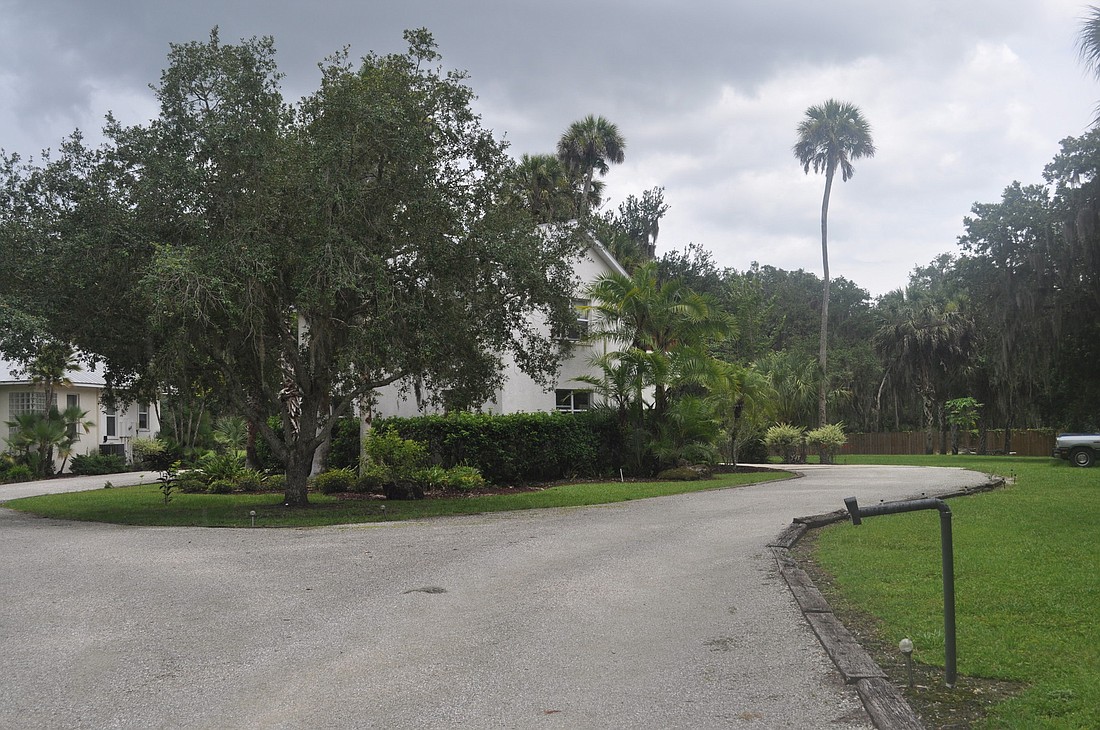- April 25, 2024
-
-
Loading

Loading

EAST COUNTY — A Manatee County hearing officer has reversed an earlier decision and approved a special permit allowing an East County Daoist temple to build a worship center on its property.
The Shien Deh Temple has been operating out of a 4,000-square-foot single-family home at 6916 18th Ave. E, east of Morgan Johnson Road, since 2001.
The worship center, a two-story facility to be built on a 2.39-acre lot, represents an expansion of the temple, which has seen its clientele increase in recent years and has run out of space to accommodate it.
In May, hearing officer Jack Hawkins ruled he would deny the permit, saying the proposed use was not compatible with the adjacent residential area.
Neighbors agreed and circulated a petition against the temple’s expansion.
The temple’s property, located in a district zoned for suburban agriculture, sits among a quiet residential community of homes with spacious lots and barns. An 18-acre nursery, the Suncoast Nursery, also calls the street home.
In August, The Ming Deh Development Society, a nonprofit corporation that operates the temple, applied for the special-use permit to accommodate a sanctuary and meditation rooms.
At that time, the county attorney’s office and zoning staff recommended approval of the project.
In April, Hawkins held a public hearing on the issue at which neighbors expressed concerns.
After Hawkins denied the special permit the first time, Robert Lincoln, a lawyer representing Shien Deh, filed objections, arguing Hawkins misinterpreted the law in making his decision.
Hawkins reopened the public hearing in June.
In his revised ruling, made July 3, Hawkins cites the Manatee County Land Development Code, which says places of worship are considered residential-support uses.
Hawkins said the worship center is not entirely compatible with the neighborhood but, with conditions, it can be.
“Based on the evidence submitted, it appears the neighborhood has been nearly or completely developed into a residential neighborhood with single-family homes,” Hawkins wrote. “Thus, it does not appear the development would necessarily have a negative impact on the development and improvement of surrounding properties.”
The maximum capacity of the worship center must be 52 seats, Hawkins wrote. The temple must also provide 17 parking spaces on the property.
Hawkins ordered at least 25 canopy trees be planted on the north end of the property to help shield the view of the worship center from the street.
A drainage easement and plans to handle stormwater runoff must also be included in the final site plan, because the property is in a flood zone, Hawkins wrote.
For Shien Deh temple-goers, a group of 25 to 30 people who come to learn about Dao, a Chinese concept signifying “the way,” the decision brought peace.
“It’s great news,” said Lee Daly, a therapist from Tampa who has attended the temple since 2002. “The concept of Dao starts with respect. The temple is a respectful place, and Dao encourages us to apply that into life. It feeds into relationships. It’s about being tolerant of other virtues. We want to be kind and respectful to our neighbors.”
The new worship center will feature enough space for people to kneel on boxes and pray.
Inside, temple-goers learn about Dao, a “precursor” to Daoism, a more formal religion that emphasizes living in harmony with “the way.”
Shien Deh temple-goers do not practice Daoism in the formal sense. In fact, Christians, Jews, Buddhists and Catholics are all among the regular group of attendees, Daly said.
Daly was raised Catholic but prefers not to align herself with one religion. She learned about Dao through a friend. She quickly found it as a concept that encourages people to make positive change, similar to what she tells patients as a therapist.
“We don’t encourage participants to leave the religions they already identify with,” Daly said. “Dao is not in conflict with any religions. In fact, we encourage people to go back and study their own religion further. We study to reveal the God within.”
Daly said the temple hosts two weekend classes a month and night meetings based on the cycle of the moon.
Contact Josh Siegel at [email protected].